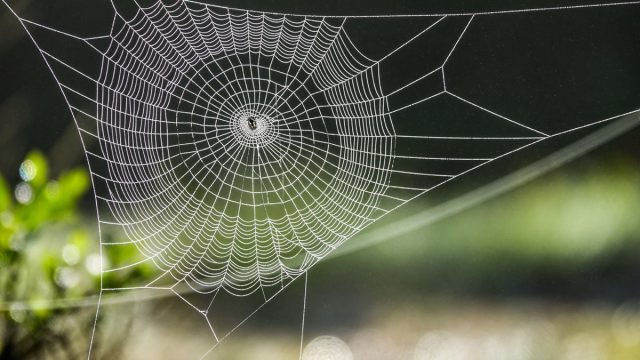If You See This Rare Venomous Spider, Keep Your Distance

With most people staying home over the past year, some otherwise shy creatures have come out of hiding—for better or worse. A generally rare and reclusive venomous spider has been making more prominent appearances recently. While the spider doesn’t commonly bite, it can cause severe damage or death when it does. So if you do see one of these critters, you’ll want to keep your distance. Read on to learn which spider you should keep an eye out for, and for more bugs making a comeback, These Awful Bugs You Forgot About May Soon Come Back, Exterminators Warn.
The venomous Mediterranean recluse spider has been spotted in Michigan.

The Mediterranean recluse, formally known as Loxosceles rufescens, has been popping up more frequently than usual lately. The venomous spider, which usually stays far from populated spots, has been seen in various areas across the University of Michigan’s Ann Arbor campus, likely “due to a decrease in building occupancy,” per a statement from the school.
The spiders were found in the library and about a dozen academic buildings but have yet to be seen in any residence halls, The New York Times reported. These sightings caused a two-day shutdown of the university’s Shapiro Library. And for another creature making a rare appearance, If You Live Here, Prepare for a Major Bug Infestation, Expert Warns.
This spider’s bite can kill you.

While a Mediterranean recluse spider bite is quite rare, it could be deadly. These arachnids are not usually aggressive, but if they do bite you, it could lead to necrosis (death of cells and tissue) or death, according to The New York Times. The spider is a light brown color with a body that can be up to half an inch long with legs that stretch over an inch. They’re closely related to the more commonly known brown recluse spider. And for more up-to-date information, sign up for our daily newsletter.
University officials say the library shutdown was unnecessary.

The Shapiro Library was closed for two days after the discovery of these spiders, but university officials think this was an overreaction. “A misunderstanding of the situation led the library to close for two days,” Kim Broekhuizen, a spokesperson for the university, said in the statement. “Based on what we all know now, library managers agree that it was a mistake to close the building, and they apologize for the inconvenience to the university community.”
Anne Danielson-Francois, PhD, an associate professor of biology at the University of Michigan, also pointed out in the statement, “As the name implies, they are reclusive, and bites are extremely rare.” And for more fascinating insect information, You Can’t Kill This Bug, Even If You Run Over It With Your Car.
Other animals have been emerging during the pandemic.

The Mediterranean recluse spider isn’t the only creature that’s come out of hiding over the past year. In April 2020, The New York Times reported that when people went into lockdown, animals emerged. Some of the rare animal sightings included goats in Wales, coyotes in San Francisco, deer in Japan, and emboldened rats in New York City. “Animals are opportunistic,” Claudia Riegel, executive director of the New Orleans Mosquito, Termite and Rodent Control Board, told The New York Times. And for a bug you shouldn’t squish, If You See This Bug That’s About to Invade the U.S., Don’t Kill It.